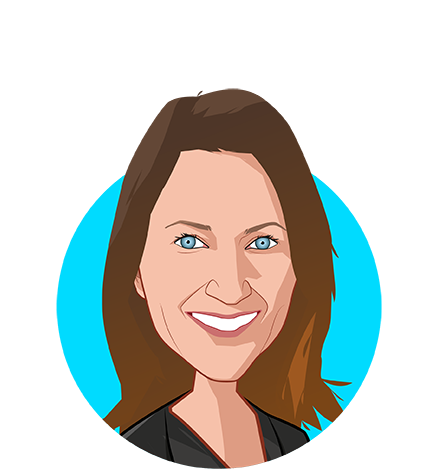COVID-19: The Critical Role of Real-World Evidence Made Real
Author:
Quick Read
In response to the COVID-19 pandemic, our team will be interviewing experts from across the ecosystem to bring the HLTH community timely facts and updates.
Keith, the 63-year-old father of an Aetion colleague, was managing his COVID-19 symptoms for two weeks at home, seemingly successfully. Then he suddenly took a turn for the worse. He was the last patient at his New York hospital to qualify for compassionate use of remdesivir.
My sister’s friend Jim, a healthy 49-year-old, was hospitalized for COVID-19 treatment for over a month. He participated in a randomized trial, and his care included ventilation, extracorporeal membrane oxygenation, hydroxychloroquine, a statin, tocilizumab, and maybe remdesivir.
Max, my colleague’s 15-year-old son, experienced COVID-19 symptoms in the form of a nasty rash on his toes. His doctor advised him to wait and see.
And there are others: my college friend T.J. self-quarantined; my friend’s husband Gavin didn’t realize what he had until after he recovered. The list of people I know who have or have had this virus goes on.
Who’s next? And how on earth will their doctors know which treatment is best for whom—and when? (Also, why is everyone I know who has had a COVID-19 diagnosis male?)
I’m not sure. But I’m certain that it’s critical we look to real-world data (RWD), right now, for answers.
RWD represent our daily lives as captured by sources like health care claims, EHRs, labs, and wearable devices. These sources provide a rich and current—with as few as two- to three-day lag times—view of patient experiences. Looking at data collected in uncontrolled settings helps shed light on practice patterns and outcomes for people in different demographics and with various comorbidities. Dr. Scott Gottlieb, who’s on our Board, has made a point to say that while these data won’t be the sole basis of assessing and authorizing potential COVID-19 interventions, they are an important adjunct.
With the right level of scientific rigor, we can transform these data into real-world evidence (RWE), evidence that is credible enough for conclusions on treatment safety and effectiveness. Moving rapidly but no less rigorously means using Aetion Evidence Platform® to consistently apply principled database epidemiology concepts; to quickly run and rerun analyses as data accrue; and to support transparency and replicability of results.
Naturally, we are not alone in looking to RWD for answers to address the COVID-19 crisis. We’re pleased to join with the Reagan-Udall Foundation for the FDA and Friends of Cancer Research in an effort, Covid-19 Evidence Accelerator, to combine forces (and data) and efficiently resolve key questions about COVID-19. It’s through this kind of cross-industry collaboration with data providers, government, academia, and health systems that we’ll deliver insights to the people who most need them.
For definitive insights without delay, our biopharma and payer partners are also using a COVID-19 specific solution we developed with HealthVerity. The Real-Time Insights and Evidence system enables evidence on treatment utilization and outcomes in a rapidly evolving landscape. Through the integration of data—data that are simultaneously current and complete—into a Covid-ready evidence platform, researchers can create a system of studies to respond in real-time to COVID-19 (and its knock-on effects). All of this will become increasingly helpful as we consider outbreak scenarios in the fall.
I’m grateful to share that Keith, Jim, Max, T.J., and Gavin are all breathing normally again. I’m grateful to all who are helping advance RWE to accelerate safe and effective treatments for many more COVID-19 patients.
Lastly, especially, I’m grateful to the scientists that will lead us to the other side of this crisis, as they help the world understand, manage, and treat disease.
About Carolyn Magill:
Carolyn is the CEO of Aetion, the digital health company delivering the platform that turns real-world data into the regulatory-grade evidence needed to inform health care’s most critical decisions: which treatments work best, for whom, when, and how much we should pay for them.
Before Aetion, Carolyn held leadership roles at three companies central to the shift from volume to value in health care. As CEO of Remedy Partners, she led the premier company for bundled payments software and services. As Executive Vice President of Payer Strategy and Operations at Evolent Health, she led the team responsible for establishing value-based contracts on behalf of health systems and provider-led health plans. During her four year tenure, Evolent progressed from start-up through IPO to become a major force in health systems embracing population health.
For the preceding eight years, Carolyn served in leadership positions in the Medicare and Medicaid businesses of UnitedHealth Group. Her roles included Chief Operating Officer of its Community and State plan in New Jersey, and the national Vice President of Medicare Special Needs Plans, supporting people with multiple chronic illnesses and limited incomes.
Carolyn has an undergraduate degree from Harvard University and an MBA in health care management from the Wharton School of Business at the University of Pennsylvania. She serves on the board of the Center for Health Policy Development, and of Parity.org, an organization that aims to close the gender gap at the highest levels of business. She also serves on the Entrepreneurial Council of United States of Care, a bipartisan nonprofit focused on improving access to quality health care.
